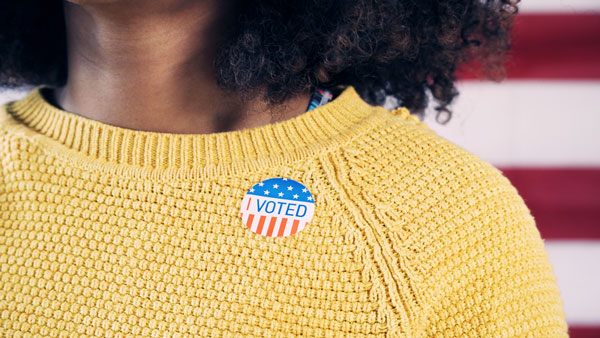


In partnership with the University of Wisconsin’s State Democracy Research Initiative, the Center for Constitutional Design will host an interdisciplinary conference on electoral federalism. Participants in the event will discuss how federalism affects electoral institutions in the United States, how U.S. electoral institutions may be evaluated under international standards of electoral efficacy, and how varying institutional structures and conflicts within the states shape electoral administration and procedures.
Join us in-person or online.
Breakfast, lunch and refreshments provided for in-person attendees.

Professor of Law | UCLA School of Law
Director | Safeguarding Democracy Project
Richard L. Hasen is an internationally recognized expert in election law and campaign finance regulation, writing as well in the areas of legislation and statutory interpretation, remedies, and torts. He is co-author of leading casebooks in election law and remedies. Hasen served in 2020 as a CNN Election Law Analyst. He directs UCLA Law’s Safeguarding Democracy Project.
Read More
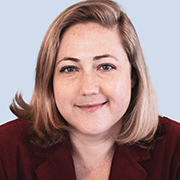
President and CEO | Longwell Partners
Publisher | The Bulwark
Sarah Longwell is a Co-Founder of Defending Democracy Together and executive director of the Republican Accountability Project. She is also the Publisher of The Bulwark. She lives in Washington, D.C. with her family and is a graduate of Kenyon College.
Read More
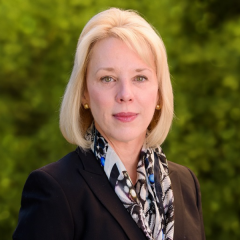
Executive Director | Center for Constitutional Design
Foundation Professor of Law and Political Science | Sandra Day O’Connor College of Law
Stefanie Lindquist is a professor of law and political sciences in the School of Global Politics and the Sandra Day O’Connor College of Law at ASU. She is recognized as an expert on the U.S. Supreme Court, Constitutional Law, and Administrative Law. Her book, Measuring Judicial Activism, is the first publication to define the oft-used term quantitatively. Her prior service at ASU includes heading ASU’s Global Academic Initiatives as senior vice president in the Office of the Provost (2019 to 2021). In that role, she facilitated ASU’s global academic portfolio. She also served as deputy provost and vice president for academic affairs and was Foundation Professor of Law and Political Science at ASU from 2016 to 2019. Before coming to ASU, she was dean and Arch Professor at UGA’s School of Public and International Affairs from 2013 to 2016, after serving as interim dean, associate dean for outreach, and associate dean for academic affairs at the University of Texas School of Law.
Read More
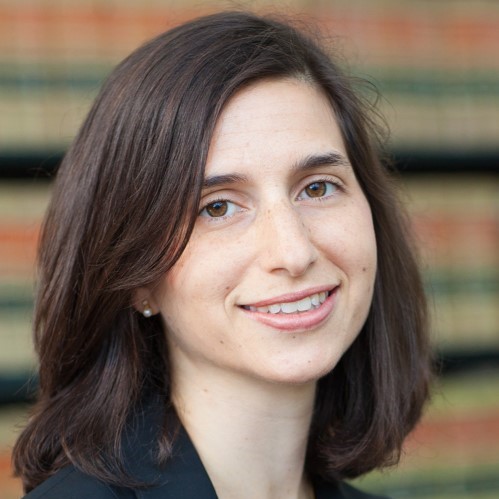
Associate Professor and Co-Director, State Democracy Research Initiative | University of Wisconsin Law School
Miriam Seifter is an Associate Professor of Law, Co-Director of the State Democracy Research Initiative, and Rowe Faculty Fellow in Regulatory Law at the University of Wisconsin Law School. Her research interests include federalism, administrative and constitutional law, and state and local government law, with a focus on challenges affecting democracy at the state level. She also teaches courses in Administrative Law, Property Law, and State and Local Government Law. Professor Seifter’s recent publications appear in the Harvard Law Review, the Columbia Law Review, the Michigan Law Review, and the NYU Law Review, among others.
Read More

Professor of Law | UCLA School of Law
Director | Safeguarding Democracy Project
Richard L. Hasen is an internationally recognized expert in election law and campaign finance regulation, writing as well in the areas of legislation and statutory interpretation, remedies, and torts. He is co-author of leading casebooks in election law and remedies. Hasen served in 2020 as a CNN Election Law Analyst. He directs UCLA Law’s Safeguarding Democracy Project.
Read More
This panel will focus on how federalism operates as a double-edged sword in the U.S. constitutional democracy. While state election officials acted to preserve and protect the integrity of elections in 2020, some state legislatures are now adopting laws that many believe serve to undermine the franchise. Unlike many other nations, the U.S. electoral system is decentralized and subject to state and local control. How can these dynamics be conceptualized theoretically and constitutionally, and how should we accommodate them in future elections? How does the concept of the states as laboratories-of-democracy play out in this space?
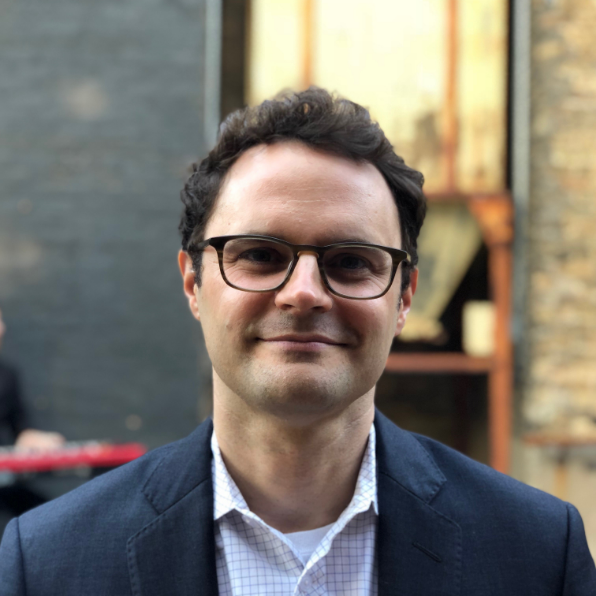
Associate Professor | Sandra Day O’Connor College of Law
Professor Weinstein-Tull studies structural constitutional law, state and local governments, and election law. His scholarship reconstructs theories of public law to better account for the on-the-ground complexities of governmental institutions and day-to-day human experiences of the law. In the context of federalism, Weinstein-Tull has written about the ways that state and local governments can both frustrate and strengthen federal power, including federal civil rights laws and the right to vote.
Read More
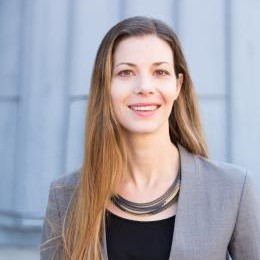
Professor | Columbia Law School
Jessica Bulman-Pozen is the Betts Professor of Law and a director of the Center for Constitutional Governance at Columbia Law School. An expert on administrative law and constitutional law, she has written extensively about federalism. Before joining the Columbia faculty, she served as an attorney-adviser in the U.S. Department of Justice’s Office of Legal Counsel and as a law clerk to Justice John Paul Stevens of the U.S. Supreme Court and Judge Merrick B. Garland of the U.S. Court of Appeals for the D.C. Circuit.
Read More
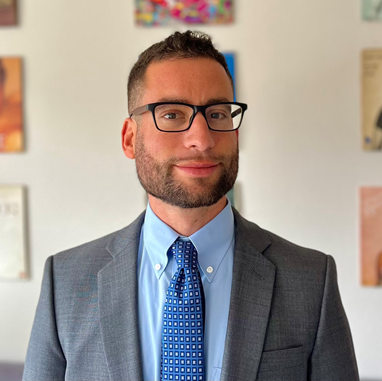
Assistant Professor of Political Science | University of Washington
Jacob M. Grumbach is an Assistant Professor of Political Science at the University of Washington and a Faculty Associate with the Harry Bridges Center for Labor Studies. Grumbach’s research focuses on the political economy of U.S. democracy, with an emphasis on public policy, racial and economic inequality, American federalism, and statistical methods. His book, Laboratories Against Democracy reveals how the pursuit of national partisan agendas at the state level has intensified the challenges facing American democracy.
Read More

Senior Fellow | American Enterprise Institute
Kevin R. Kosar is a senior fellow at the American Enterprise Institute (AEI), where he studies the US Congress, the administrative state, American politics, election reform, and the US Postal Service. Before joining AEI, Dr. Kosar was at the R Street Institute, where he served as vice president of policy, vice president of research partnerships, and senior fellow and director of the Governance Project. He writes the Election Reform Q&A blog series, which aims to foster a nonpartisan conversation around elections policies. His most recent book is Congress Overwhelmed: The Decline in Congressional Capacity and Prospects for Reform.
Read More
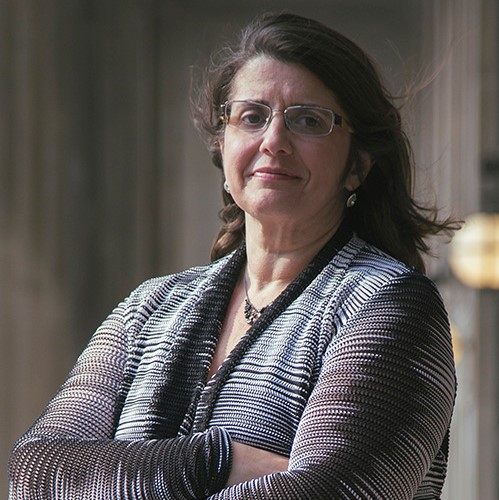
Professor and Associate Dean | Chicago-Kent College of Law
Carolyn Shapiro is a Professor of Law and Associate Dean for Academic Administration and Strategic Initiatives at Chicago-Kent College of Law, where she is also the founder and co-director of Chicago-Kent’s Institute on the Supreme Court of the United States (ISCOTUS), and the faculty director of the Constitutional Democracy Project, a civic education initiative. Professor Shapiro’s scholarship is largely focused on the Supreme Court, its relationship to other courts and institutions, and its role in our constitutional democracy, as well as on other structural constitutional matters and issues related to democracy.
Read More
Global institutions such as the Institute for Democracy and Electoral Assistance advance criteria to measure and assess the adequacy of elections worldwide. Yet the U.S. is rarely subject to such assessments because it does not deploy a national electoral management body responsible for governing elections, among other reasons. Instead, the individual states manage the electoral process pursuant to the U.S. Constitution, Article I. How does the U.S. fare under these international standards, including ensuring that historically marginalized groups have access to the franchise? How can international, national, or other criteria be developed and applied to the United States plural election systems?

VP, Global Strategy and Technical Leadership | The International Foundation for Electoral Systems
Chad Vickery, vice president of global strategy and technical leadership at the International Foundation for Electoral Systems (IFES), has extensive legal and international election administration experience with an emphasis on strengthening democracy and governance in transitioning societies. He manages IFES’ global applied research, technical leadership and strategic innovations initiatives. Vickery’s specific programmatic experience includes leading electoral integrity assessments and projects designed to ensure the development of impartial legal frameworks for elections, increasing professionalism of election management bodies, establishing effective election dispute programs, and increasing political participation of historically disenfranchised groups into the electoral process.
Read More
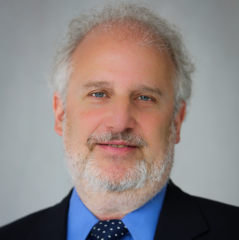
Adjunct Professor | Sandra Day O’Connor College of Law
Larry Garber is an independent consultant with more than 35 years of experience working in the fields of national security policy, international development, human rights and democracy promotion. He has managed complex governmental and nongovernmental organizations, served in senior national security policy positions, taught high-ranking military and civilian officials, and trained counterparts in more than 30 countries on five continents. Larry currently serves as the Chief of Party for The Carter Center’s Zimbabwe International Election Mission. In 2020 and 2021, he taught a course on “Election Law: US and International Perspectives” at the Sandra Day O’Connor College of Law, Arizona State University. He is a member of the National Task Force on Election Crises and on the Board of Election Reformers Network.
Read More
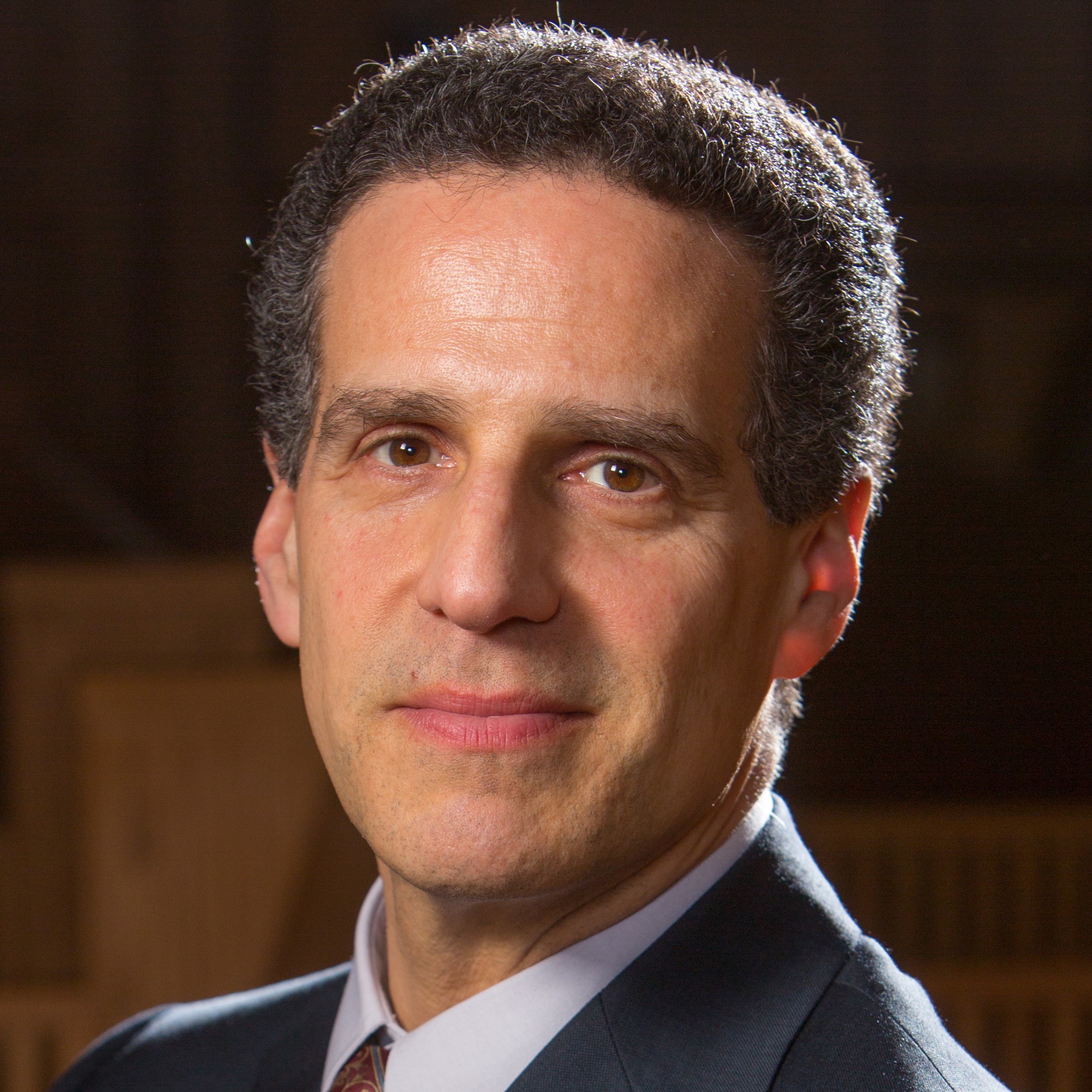
SUNY Distinguished Professor | University at Buffalo School of Law
James A. Gardner is Bridget and Thomas Black SUNY Distinguished Professor at the State University of New York, University at Buffalo School of Law, where he teaches in the areas of constitutional, government, and election law. He is the author or editor of seven books and more than seventy articles and book chapters. His work, which deals largely with issues of constitutional structure and design, focuses on two areas: the law and legal structure of democratic institutions, and the structure and operation in practice of federal forms of governance. His books include Comparative Election Law (Edward Elgar 2022); Election Law in the American Political System (with Guy-Uriel Charles, Aspen, 3d ed. forthcoming 2022); and What Are Campaigns For? The Role of Persuasion in Electoral Law and Politics (Oxford 2009). Each year since 2015, he has been named one of the ten most-cited U.S. legal authorities on election law by the Election Law Blog.
Read More

Lecturer in Comparative Politics | Harvard Kennedy School
Pippa Norris is a comparative political scientist who has taught at Harvard for a quarter century. She is the McGuire Lecturer in Comparative Politics at the John F. Kennedy School of Government, Harvard University, and Director of the Electoral Integrity project. Her research compares public opinion and elections, political institutions and cultures, gender politics, and political communications in many countries worldwide.
Read More
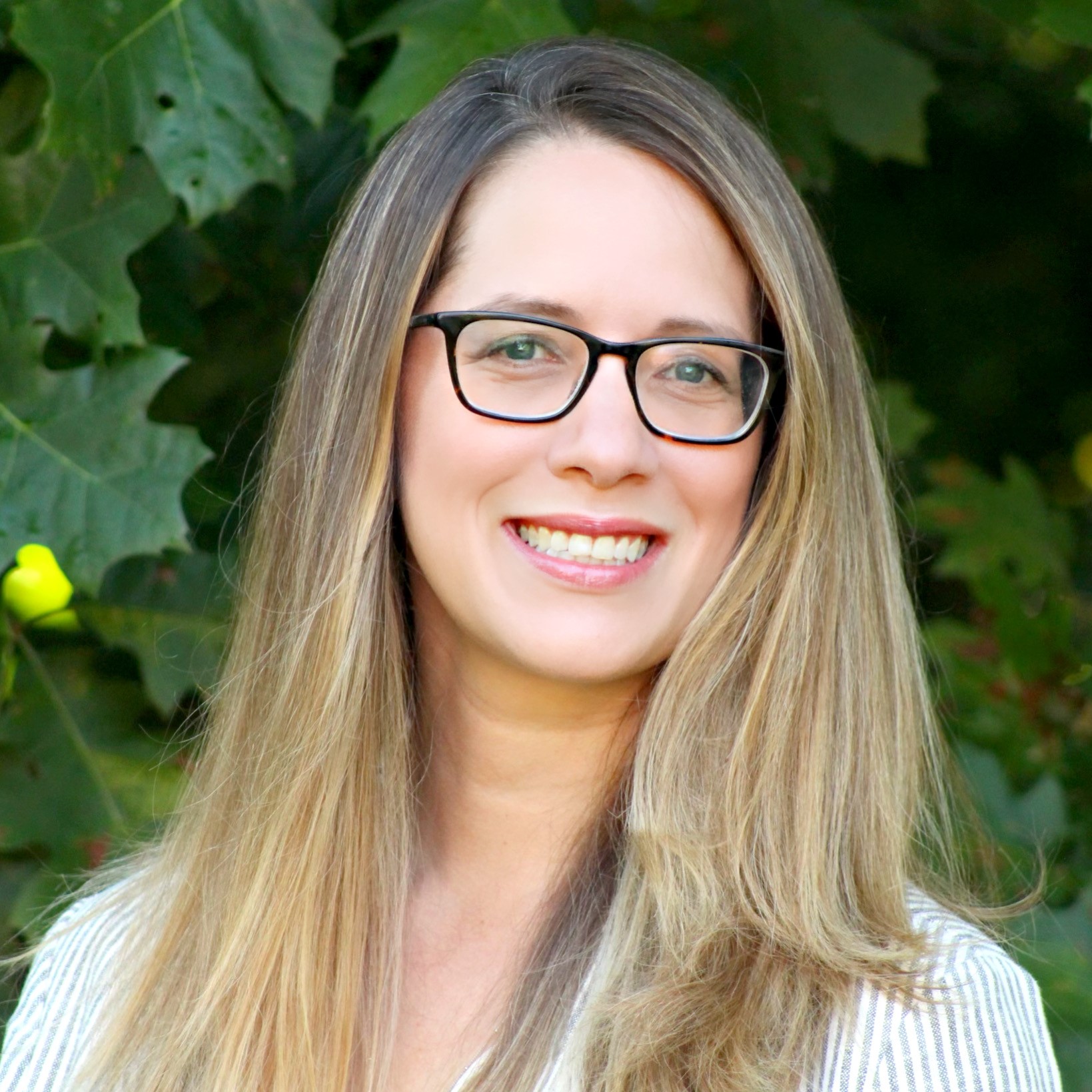
Managing Director, Center for Applied Research and Learning | The International Foundation for Electoral Systems
Erica Shein is the Managing Director of the Center for Applied Research and Learning at the International Foundation for Electoral Systems (IFES) and an expert in electoral integrity. She leads the development and execution of IFES’ research agenda and Knowledge Management Initiative. Erica was the Lead Editor for the IFES COVID-19 Briefing Series, co-author of the recent Foreign Policy piece The Dark Side of Democracy, and co-creator of the IFES Electoral Integrity Assessment Methodology and the Abuse of State Resources Research and Assessment Framework.
Read More

Executive Director | Center for Constitutional Design
Foundation Professor of Law and Political Science | Sandra Day O’Connor College of Law
Stefanie Lindquist is a professor of law and political sciences in the School of Global Politics and the Sandra Day O’Connor College of Law at ASU. She is recognized as an expert on the U.S. Supreme Court, Constitutional Law, and Administrative Law. Her book, Measuring Judicial Activism, is the first publication to define the oft-used term quantitatively. Her prior service at ASU includes heading ASU’s Global Academic Initiatives as senior vice president in the Office of the Provost (2019 to 2021). In that role, she facilitated ASU’s global academic portfolio. She also served as deputy provost and vice president for academic affairs and was Foundation Professor of Law and Political Science at ASU from 2016 to 2019. Before coming to ASU, she was dean and Arch Professor at UGA’s School of Public and International Affairs from 2013 to 2016, after serving as interim dean, associate dean for outreach, and associate dean for academic affairs at the University of Texas School of Law.
Read More

Associate Professor and Co-Director, State Democracy Research Initiative | University of Wisconsin Law School
Miriam Seifter is an Associate Professor of Law, Co-Director of the State Democracy Research Initiative, and Rowe Faculty Fellow in Regulatory Law at the University of Wisconsin Law School. Her research interests include federalism, administrative and constitutional law, and state and local government law, with a focus on challenges affecting democracy at the state level. She also teaches courses in Administrative Law, Property Law, and State and Local Government Law. Professor Seifter’s recent publications appear in the Harvard Law Review, the Columbia Law Review, the Michigan Law Review, and the NYU Law Review, among others.
Read More

Executive Director | Center for Constitutional Design
Foundation Professor of Law and Political Science | Sandra Day O’Connor College of Law
Stefanie Lindquist is a professor of law and political sciences in the School of Global Politics and the Sandra Day O’Connor College of Law at ASU. She is recognized as an expert on the U.S. Supreme Court, Constitutional Law, and Administrative Law. Her book, Measuring Judicial Activism, is the first publication to define the oft-used term quantitatively. Her prior service at ASU includes heading ASU’s Global Academic Initiatives as senior vice president in the Office of the Provost (2019 to 2021). In that role, she facilitated ASU’s global academic portfolio. She also served as deputy provost and vice president for academic affairs and was Foundation Professor of Law and Political Science at ASU from 2016 to 2019. Before coming to ASU, she was dean and Arch Professor at UGA’s School of Public and International Affairs from 2013 to 2016, after serving as interim dean, associate dean for outreach, and associate dean for academic affairs at the University of Texas School of Law.
Read More

Associate Professor and Co-Director, State Democracy Research Initiative | University of Wisconsin Law School
Miriam Seifter is an Associate Professor of Law, Co-Director of the State Democracy Research Initiative, and Rowe Faculty Fellow in Regulatory Law at the University of Wisconsin Law School. Her research interests include federalism, administrative and constitutional law, and state and local government law, with a focus on challenges affecting democracy at the state level. She also teaches courses in Administrative Law, Property Law, and State and Local Government Law. Professor Seifter’s recent publications appear in the Harvard Law Review, the Columbia Law Review, the Michigan Law Review, and the NYU Law Review, among others.
Read More

President and CEO | Longwell Partners
Publisher | The Bulwark
Sarah Longwell is a Co-Founder of Defending Democracy Together and executive director of the Republican Accountability Project. She is also the Publisher of The Bulwark. She lives in Washington, D.C. with her family and is a graduate of Kenyon College.
Read More
Public administration scholars focus on the manner in which principles of effective administration apply in the election law context. Because U.S. election administration is conducted by local and state governments, the manner in which election officials are selected, trained, funded, and supervised in the plural federal framework deserves attention. What can be learned from public administration about the complexities of election processing at the state and local levels? How do these officials conceptualize their roles and internalize principles of integrity and regularity in the exercise of their official duties? How does funding (adequate or inadequate) shape these systems, and who should be responsible for funding recounts and audits? How does election administration differ between urban and rural areas? In what ways might local administration hamper efforts to ensure racial equality in access to the ballot, address language access issues, and provide accommodations for voters with disabilities?
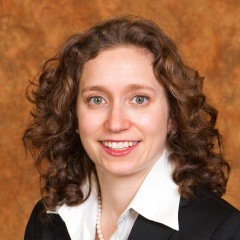
Professor | Sandra Day O’Connor College of Law
Erin Adele Scharff joined the ASU College of Law faculty in 2014. Previously, she was a visiting assistant professor of tax law at New York University School of Law, where she served as an editor of the Tax Law Review.
Scharff’s scholarship focuses on fiscal federalism, including the allocation of revenue authority between state and local governments, local government law, and state tax law. Her publications have appeared in Stanford Law Review, Georgetown Law Journal, New York University Law Review, and the Tax Law Review, among other journals. As an expert on local fiscal authority, Scharff has written several amicus briefs on the legal authority of local governments to raise revenue under state constitutions.
Read More
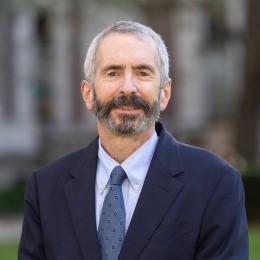
Professor of Legislation | Columbia Law School
Richard Briffault is the Joseph P. Chamberlain Professor of Legislation at Columbia Law School. His work focuses on state and local government law, the law of the political process, and government ethics. He served as Chair of the New York City Conflicts of Interest Board (2014-2020); was a member of New York’s Moreland Act Commission to Investigate Public Corruption; is the Reporter for the American Law Institute’s project on Principles of Government Ethics; and is the Reporter of the Drafting Committee on Public Meetings During Emergencies of the Uniform Laws Commission. He was a member of or consultant to several New York City and State commissions, including the State Commission on Local Government Efficiency & Competitiveness, the Temporary Commission on Constitutional Revision, the Real Property Tax Reform Commission, and the New York City Charter Revision Commission.
Read More
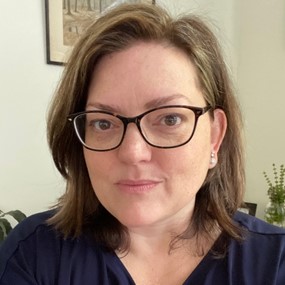
Professor of Political Science | Auburn University
Mitchell Brown, Ph.D., is the Curtis O. Liles III Professor of Political Science at Auburn University and is a founding editor of the Journal of Election Administration Research & Practice. Her work as a researcher, evaluator, trainer and consultant focuses on applied projects around the country centering on election administration and community-based problem solving. She serves on the board of directors of the National Association of Election Officials (the Election Center) and has also held board and leadership positions at the university, in state government, and in non-profit organizations.
Read More
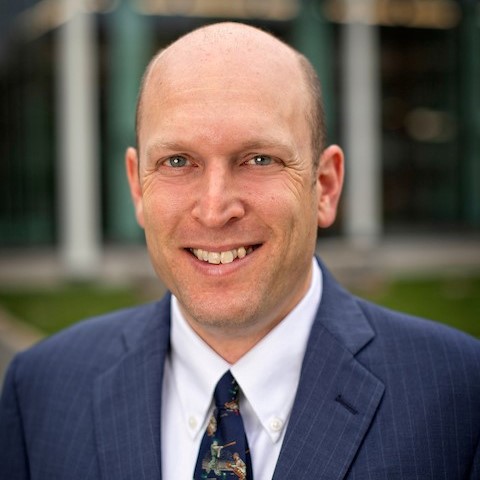
Professor | University of Kentucky Rosenberg College of Law
Professor Joshua A. Douglas of the University of Kentucky J. David Rosenberg College of Law is the Ashland-Spears, Inc. Distinguished Research Professor of Law. He teaches and researches election law and voting rights, civil procedure, constitutional law, and judicial decision making. He is the author of Vote for US: How to Take Back our Elections and Change the Future of Voting, a popular press book that provides hope and inspiration for a positive path forward on voting rights.
Read More
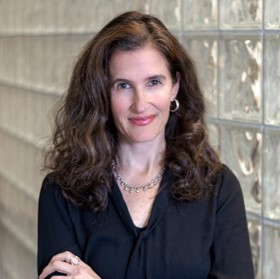
Associate Professor and Co-Director, Election Law Program | William & Mary Law School
Rebecca Green is an Associate Professor of Law at William & Mary Law School where she teaches Election Law, Privacy Law, and Alternative Dispute Resolution. Professor Green co-directs the Election Law Program, a joint project of the Law School and the National Center for State Courts that provides resources for judges on election law topics.
Read More
Some state attorneys general played a major role in litigation over the results of the 2020 election, signing on to amicus briefs in the U.S. Supreme Court alleging election fraud—even in their own states. At the same time, secretaries of state defended the results of their elections and often found themselves in conflict with attorneys general (or state solicitors) over the integrity of their states’ election results. This issue has come to a head in Arizona, for example, where the secretary of state has filed a bar complaint against lawyers in the state’s attorney general’s office for taking positions adverse to the secretary of state’s office in litigation, even though the secretary of state is a client of the attorney general. How should such conflicts of interest be addressed in the context of a plural executive? Which official properly represents the state’s relative to election results and procedures? How does this tension between constitutional officers shape election outcomes and processing, and what are the consequences for democratic values?

Associate Professor and Co-Director, State Democracy Research Initiative | University of Wisconsin Law School
Miriam Seifter is an Associate Professor of Law, Co-Director of the State Democracy Research Initiative, and Rowe Faculty Fellow in Regulatory Law at the University of Wisconsin Law School. Her research interests include federalism, administrative and constitutional law, and state and local government law, with a focus on challenges affecting democracy at the state level. She also teaches courses in Administrative Law, Property Law, and State and Local Government Law. Professor Seifter’s recent publications appear in the Harvard Law Review, the Columbia Law Review, the Michigan Law Review, and the NYU Law Review, among others.
Read More
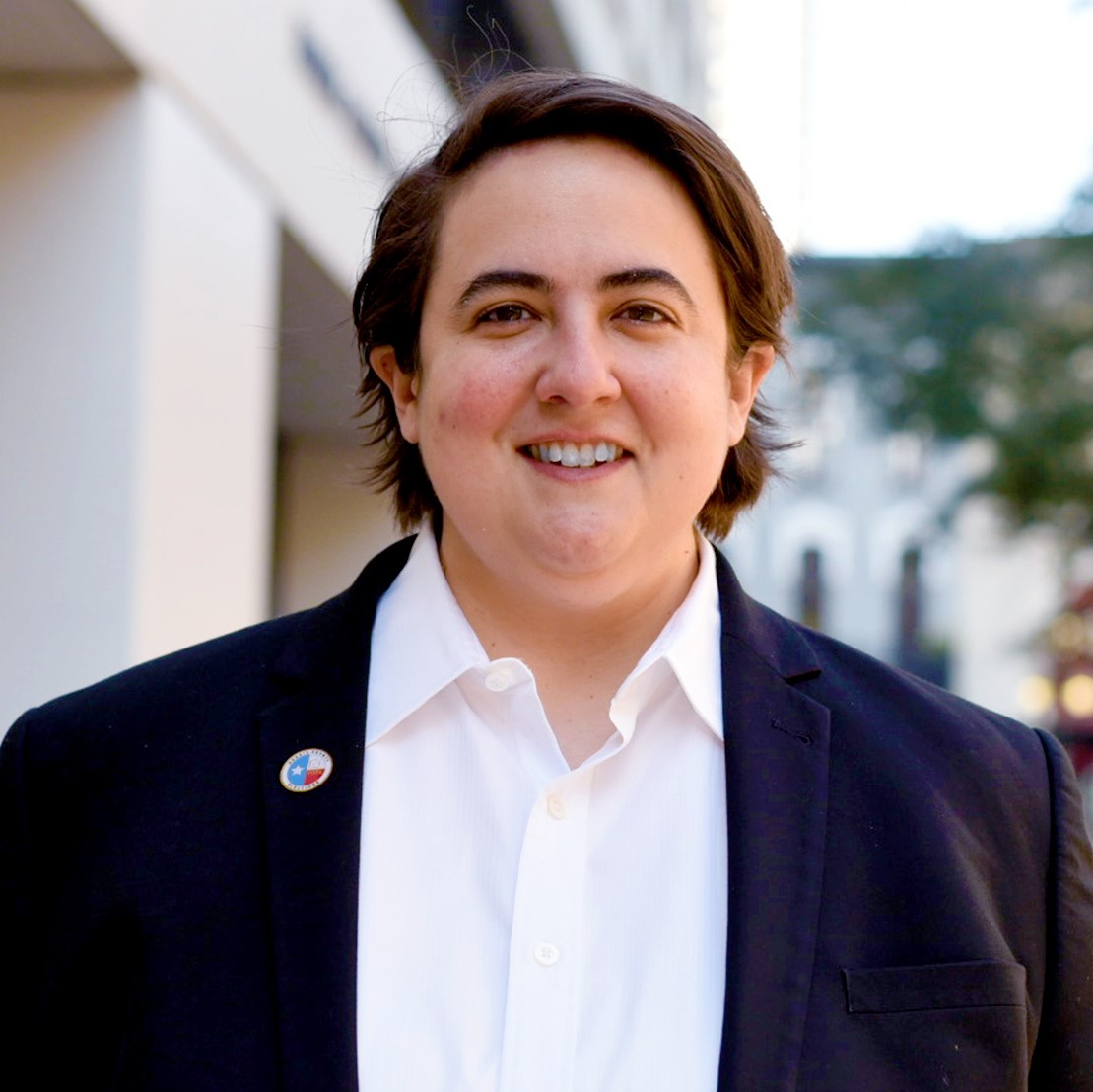
Fmr. Elections Administrator | Harris County, Texas
Isabel Longoria is a native Houstonian and born of Mexican and French immigrant parents. She is a progressive policy wonk who has dedicated her life to public service in Texas. In November 2020 Longoria was appointed as Harris County’s first ever Elections Administrator, where she served for two years, ushering in new voting machines and innovative voting practices that increased access for Harris County’s 2.5 million registered voters.
Read More
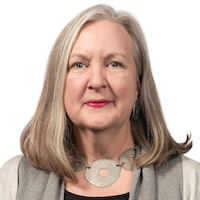
Senior Advisor, Elections | Democracy Fund
Tammy Patrick is a Senior Advisor to the Elections program at the Democracy Fund. Focusing on modern elections, Tammy helps lead the Democracy Fund’s efforts to foster a voter-centric elections system and work to support election officials across the country. In 2013 she was selected by President Obama to serve as a Commissioner on the Presidential Commission on Election Administration which led to a position at the Bipartisan Policy Center to further the work of the PCEA. Prior to that, she was the Federal Compliance Officer for Maricopa County Elections Department for eleven years. She has testified on election administration policies multiple times in the United States Senate and House of Representatives, and numerous state legislatures on behalf of members of both parties. She has been an active member of the National Association of Election Officials (Election Center) Legislative and Postal committees, representing the organization to the United States Postal Service’s Mailers Technical Advisory Committee for over a decade. She serves as an adjunct professor at the University of Minnesota’s Humphrey School of Public Policy and is CERA certified by Auburn University and the Election Center and was inducted into their Hall of Fame in 2022.
Read More
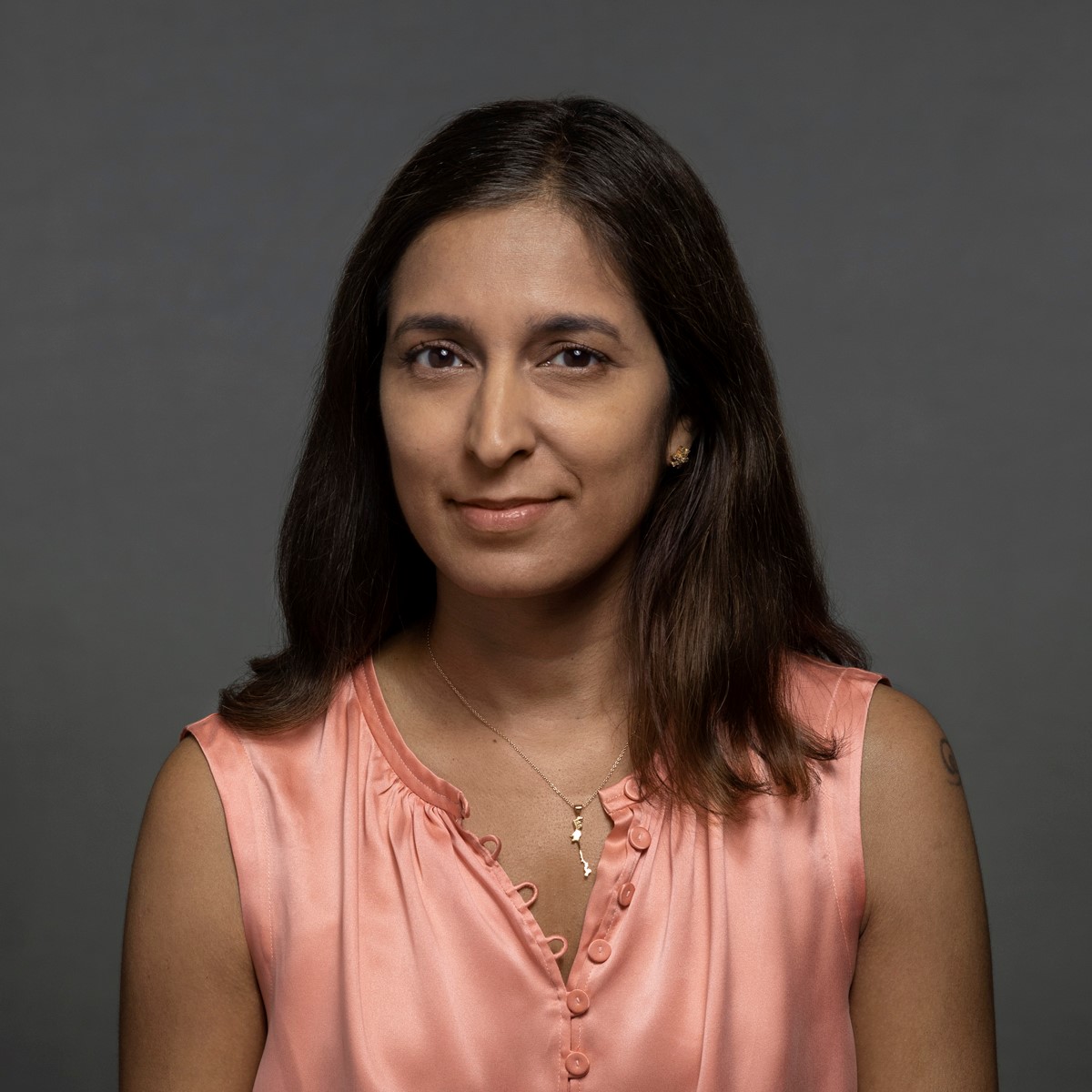
Senior Counsel, Democracy | Brennan Center for Justice
Gowri Ramachandran serves as senior counsel in the Brennan Center’s Elections & Government program. Her work focuses on election security, election administration, and combatting election disinformation. She has co-authored numerous reports on these matters, including Election Officials Under Attack: How To Protect Administrators and Safeguard Democracy; Partisan Election Reviews in Five States; and Preparing for Cyberattacks and Technical Problems During the Pandemic: A Guide for Election Officials. She has testified about these matters before multiple congressional and state legislative committees and has worked across the country to support State and local election officials, as well as nonpartisan election protection programs, committed to fulfilling voters’ rights to free, fair, and accurate elections. Before joining the Brennan Center, she was professor of law at Southwestern Law School, in Los Angeles, California, where she taught courses in constitutional law, employment discrimination, critical race theory, and the Ninth Circuit Appellate Litigation Clinic. Her work was published in Election Law Journal, North Carolina Law Review, and Yale Law Journal online, among others.
Read More
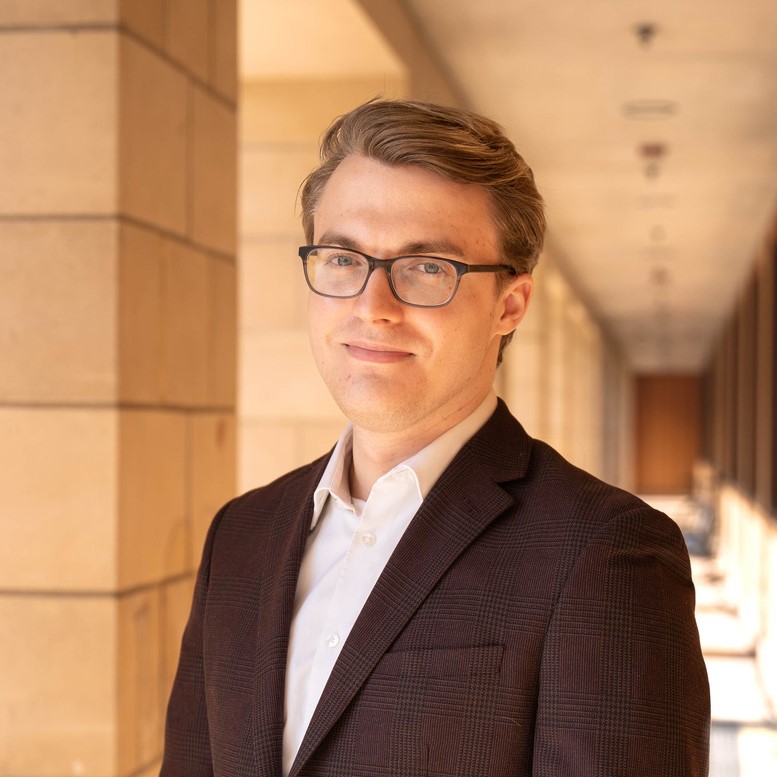
Assistant Professor | Widener University Commonwealth Law School
Quinn Yeargain is an Assistant Professor of Law at the Widener University Commonwealth Law School, and focuses on state institutional development, teaching courses and writing in state constitutional law. Quinn’s recent work has involved legal histories of the development of state-level democracy, the use of the initiative and referendum process by the electorate to build state administrative capacity, and a series of fifty-state surveys of election administration and canvassing processes. Prior to joining the faculty at Widener, Quinn was the Associate Director of the Yale Center for Environmental Law and Policy and clerked for Judge Lanier Anderson on the United States Court of Appeals for the Eleventh Circuit.
Read More

Associate Professor and Co-Director, State Democracy Research Initiative | University of Wisconsin Law School
Miriam Seifter is an Associate Professor of Law, Co-Director of the State Democracy Research Initiative, and Rowe Faculty Fellow in Regulatory Law at the University of Wisconsin Law School. Her research interests include federalism, administrative and constitutional law, and state and local government law, with a focus on challenges affecting democracy at the state level. She also teaches courses in Administrative Law, Property Law, and State and Local Government Law. Professor Seifter’s recent publications appear in the Harvard Law Review, the Columbia Law Review, the Michigan Law Review, and the NYU Law Review, among others.
Read More